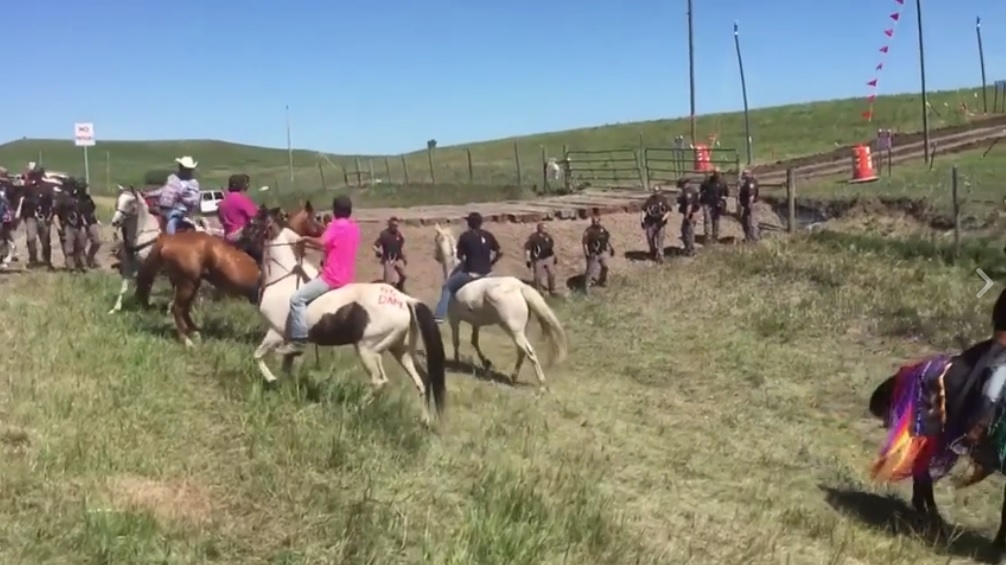Local News
No restraining order against protesters of Iowa oil pipeline

Utility board, made up of three people, denied requests to halt construction
UPDATE: DES MOINES, Iowa — A federal judge has refused to issue a restraining order against Iowa protesters planning to risk arrest to stand against a Texas company building an oil pipeline across the land of unwilling farmers.
Judge Rebecca Goodgame Ebinger said in an order issued Tuesday that Texas-based pipeline company Dakota Access hasn’t proven there’s an immediate risk of injury or damage by protesters exercising their First Amendment rights. She set a hearing for Friday to consider the issue further.
While a judge made a ruling on that issue, a court hearing on stopping the pipeline is scheduled for December. Several landowners have sued to stop pipeline construction but the courts refused to temporarily halt work until the case can be heard in court. By December, Dakota Access plans to have the pipe in the ground.
Ed Fallon, state director of Bold Iowa, a group opposing the Dakota Access pipeline for environmental and property rights reasons, says up to 100 protesters plan peaceful civil disobedience Wednesday at a pipeline construction site in central Iowa.
Dakota Access on Monday sought an immediate restraining order to keep protesters 25 feet away.
—-
PELLA, Iowa — Gov. Terry Branstad says he’ll authorize the Iowa State Patrol to deal with protesters who could try to stop construction of a $3.8 billion oil pipeline.
Branstad told reporters Monday that the state patrol would ensure the safety of those building the pipeline, and that could helping local law enforcement respond to protests.
The construction of the pipeline that cuts through 18 Iowa counties was approved by the three-person Iowa Utilities Board. The line will run 1,172 miles through Iowa, Illinois, North Dakota and South Dakota.
Pipeline opponents have promised to engage in civil disobedience to stop the construction.
“I think that the construction workers and others who have been working on the pipeline have been very patient and they want to go back to work, and they should be permitted to do that.” Branstad said. “The Utilities Board has made its decision, and I think it important that people respect and recognize that they were very thoughtful and had a deliberative process. It went on for a long time, but the decision has been made, and it should be abided by.”
The pipeline construction has been halted in North Dakota, as 60 Native American tribes from around the U.S. have come to protests. Around 30 people have been arrested there.
We are warriors #DakotaAccessPipeline | We will not stop until this pipeline is stopped. Note* This is a traditional way of introduction of horses in the Lakota way. Still a peaceful protest happening to block the Dakota Access Pipeline
Posted by Urban Native Era on Monday, August 15, 2016
About 30 people have been arrested in recent weeks and the company has temporarily stopped construction. A federal judge will rule before Sept. 9 on whether construction can be halted on the Dakota Access pipeline.
The protests in Iowa have started earlier than in North Dakota. Only 22 percent of the pipeline in the state were welded and lowered into trenches, while three-fourths of the route is cleared, utility regulators were told last week.
That’s tiny in comparison to N.D., where 63 percent of the project is finished. In South Dakota, 93 percent of the pipeline has already been constructed. Illinois it at 62 percent.
The pipeline will transport up to 570,000 barrels of crude oil daily from North Dakota’s Bakken oil fields to a distribution hub at Patoka, Ill.
Thursday, that three-person Iowa Utilities Board denied a request by a group of landowners to halt construction.
The board voted in a brief afternoon meeting against a lengthy stay of construction of the Dakota Access pipeline on parcels of 14 landowners, while a court considers a lawsuit they’ve filed. The suit challenges the board’s authority to allow eminent domain for a privately owned pipeline project.

